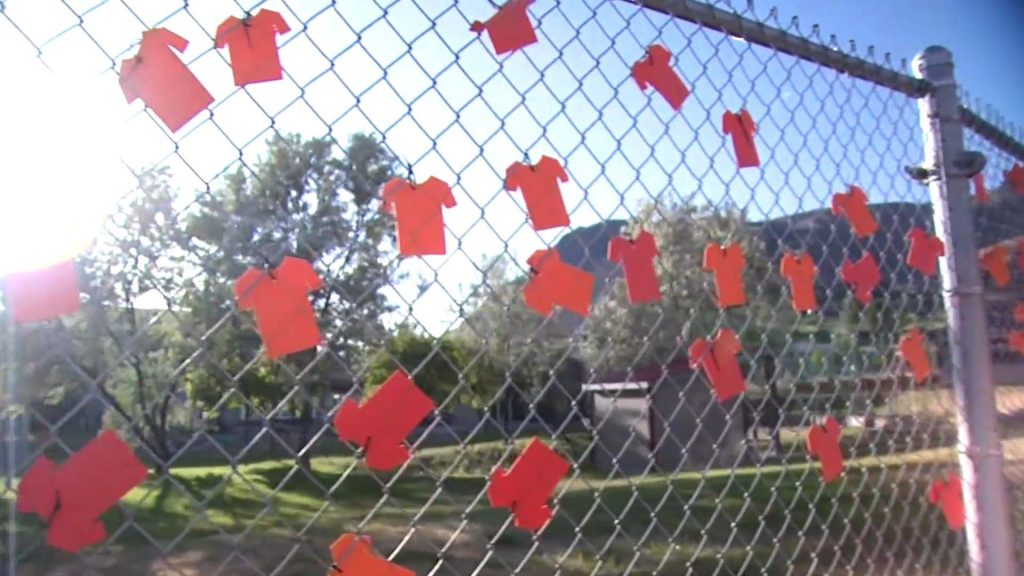
A child sleeping on a soiled mattress, lack of access to basic dental care, and kids without proper clothes were among the major violations cited by ministry inspectors who visited Ontario children’s residences.
A Global News and APTN investigation obtained 35 reports conducted at Ontario group homes/foster homes by provincial inspectors between 2016-2021.
The inspections, carried out by the Ministry of Children, Community and Social Services, offer a snapshot of systemic problems facing homes for Ontario’s most vulnerable youth.
Other alarming instances include: homes in states of disrepair, children lacking access to good nutrition, and children pleading for more outings.
Inspection reports and other reviews for daycares or long-term care homes are posted publicly, but there is little transparency when it comes to the child welfare system in Ontario.
Using freedom of information requests, the Global/APTN team sought to peel back the layer of secrecy. Part of the investigation was informed by an analysis of more than 10,000 serious occurrence reports, or SORs – filed to the province when a child dies, is injured, goes missing, or is physically restrained, among other reasons.
The other key element was inspection reports, which highlight what inspectors are seeing when speaking to youth and staff in these group homes across Ontario.
These reports also document several instances of youth missing medical appointments or not receiving proper medication.
“[Redacted] case file indicated a need for orthodontic care due to an impacted tooth, however, there was no follow up noted in the file,” said a March 2020 inspection report for a Mary Homes residence.
“Staff advised … that the social worker asked to wait six months to address this because of [a] lack of insurance,” said the report, which noted a dental appointment was eventually made following the inspection and staff received training.
Mary Homes declined repeated requests to comment on the results of the inspection reports.
Kiaras Gharabaghi, dean of Toronto Metropolitan University’s faculty of community services, said that group homes are “seen as the placement of last resort” with little concern for “quality of care.”
“Once you’ve run out of all other options, you’ve tried everything else repeatedly, then you get placed in a group home,” he said. “Young people know what that means. That means, ‘We don’t know what to do with you. We can’t really help you.’”
“Let’s hope nothing terrible happens.”
The process for inspections involves ministry staff visiting the home, interviewing staff and youth, and examining the home to see if it’s fulfilling its licensing requirements. The service provider of the home will then have the opportunity to respond to the findings.
Unlike inspections for long-term care homes, which are posted publicly, these files for group homes are not widely available.
At a children’s group home operated by Hatts Off Inc. – just outside the Hamilton – an inspection report from March 2020 found that ”menus were not found to be well balanced or nutritionally adequate.”
“My breakfast today was fruit loops, lunch was Mr. Noodles, staff do not make lunch, sometimes make dinner depending on food donation,” a youth said during an interview with an inspector.
One staff member told the same inspector the home often relies on the “church” to bring food, which is “inconsistent,” the report said.
Hatts Off also declined repeated requests to comment on the inspection reports.
The reports indicated that during a follow-up inspection by the province on July 10, 2020, staff who were interviewed confirmed they had participated in meetings to review balanced meal planning but “indicated concerns with the quality of food prepared.”
Hatts Off responded to the province the next month saying it provided confirmation it had met meal planning requirements.
The troubling reports are part of an ongoing investigation by Global News and APTN which found disturbing conditions inside Ontario’s group homes.
The investigation’s revelations were drawn from interviews with dozens of group home workers, youth, and child welfare experts. The analysis of the SORs revealed an alarming number of injuries, physical restraints, and missing kids among private service providers, which both the NDP and Green Party have promised to abolish.
While private operators make up only 25 per cent of beds across the province, they filed 55 per cent of all serious occurrence reports in residential settings, including 83 per cent of all physical restraints, 66 per cent of reports of missing youth, 62 per cent of medication errors, and 31 per cent of serious injuries.
Merrilee Fullerton, minister of children, community and social services, declined a request to be interviewed for this series about the state of the child welfare system.
In a statement, her office said the province has added 20 new positions “to support the inspection and oversight of children’s licensed residential care settings.”
“Currently a total of 43 ministry staff are conducting licensing inspections,” a spokesperson said in an email. “We are also reviewing the processes for inspections of licensed residential settings so that we can strengthen them where necessary and appropriate.”
Progressive Conservative Leader called the investigation’s findings “very disturbing” and said the province was going to step up inspections.
“I’m going to make sure we’re on this. I’m going to make sure we have more inspections going on – because as far as I’m concerned, it’s unacceptable,” Ford said.
In the worst circumstance where a home is repeatedly found to have broken its licensing requirements, the province can revoke a service provider’s licence or prevent the company from renewing its licence.
But an analysis by Global News and APTN found the province has only revoked or refused a licence eight times in the past decade.
“The province is actually very hands off on what care looks like, how it unfolds, who provides care,” said Gharabaghi. “There is a licensing process of foster homes and care homes and group homes. But those are checklist kind of processes. Do you have a fire extinguisher?
“They have virtually nothing to do with the quality of life experienced by young people in care.”
In its strategy to modernize the child welfare system, the Ontario government has promised to enhance licensing enforcement through forthcoming regulatory changes that will be rolled out over the next three to five years.
Ontario is also quietly released a new website in April that allows the public to search for any licensing conditions placed on a home.












